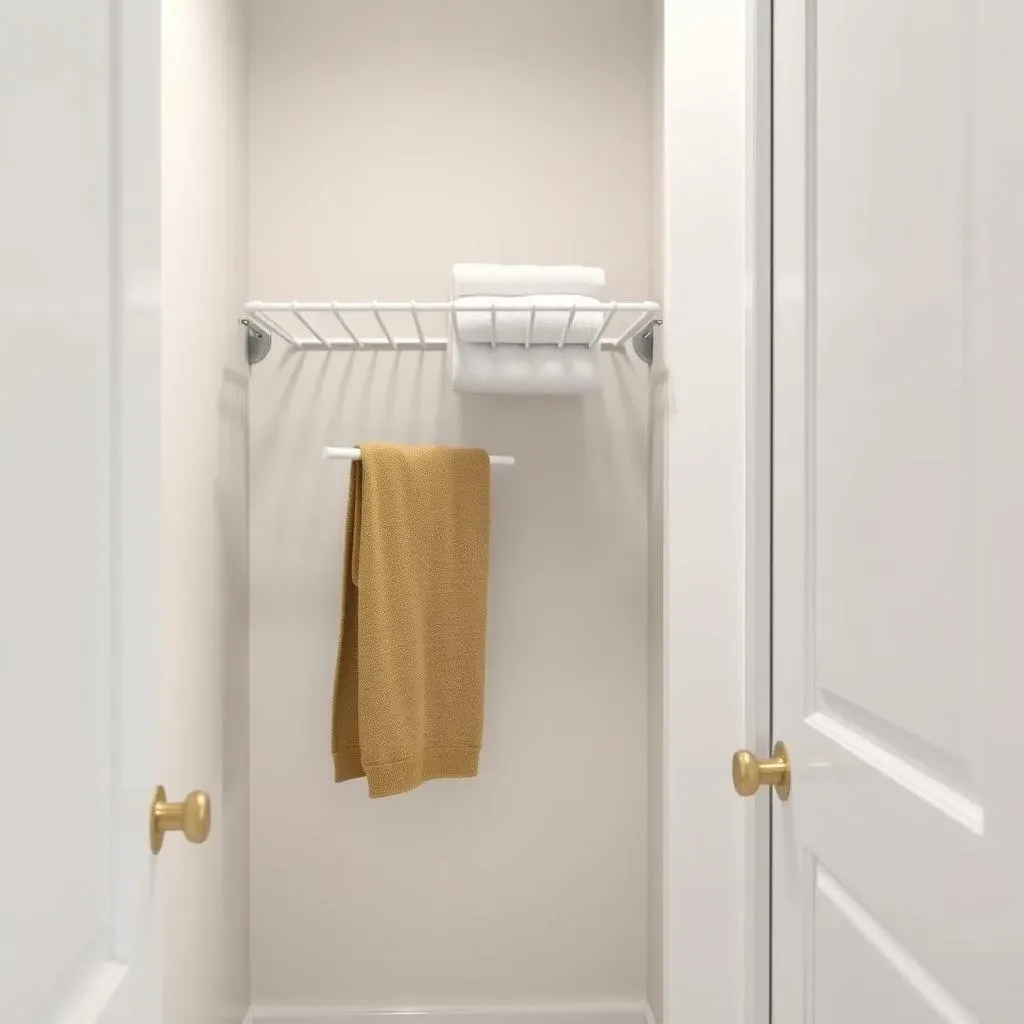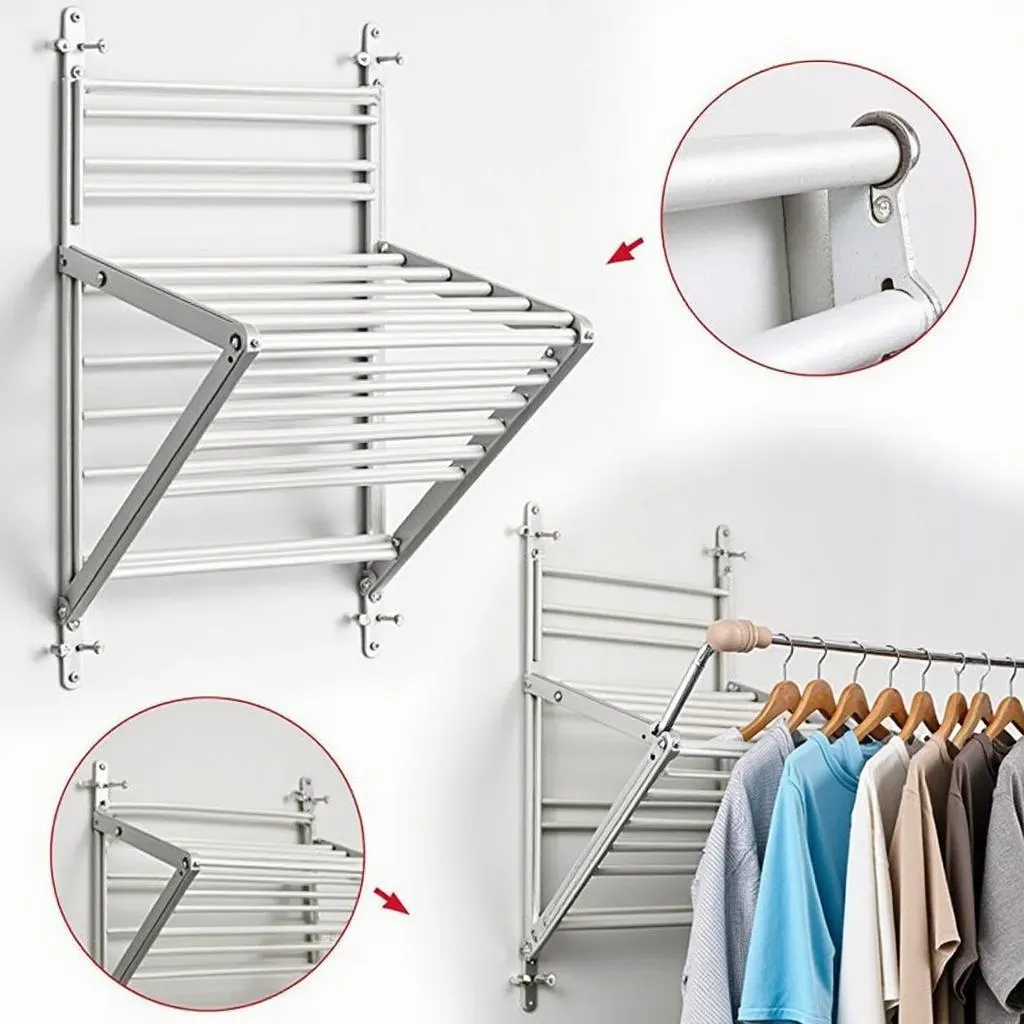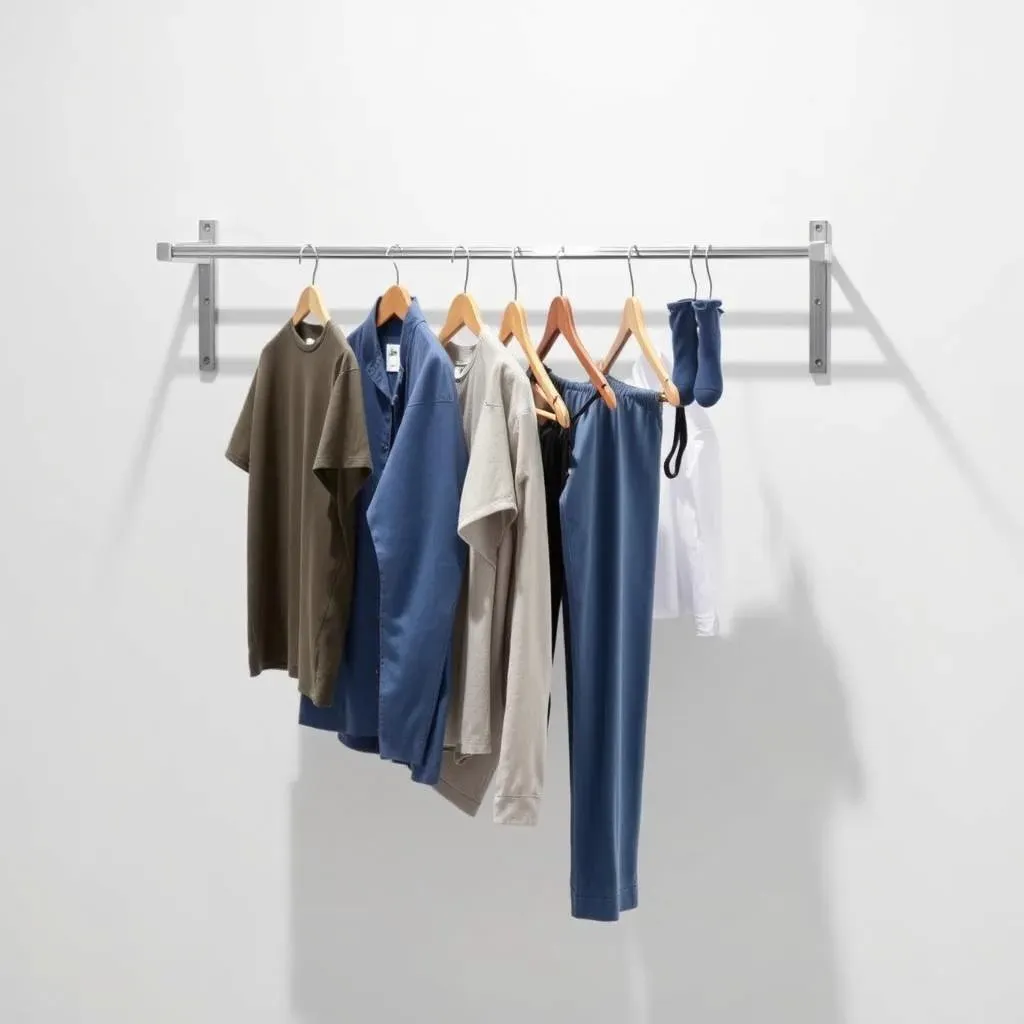Table of Contents
Is your laundry room the size of a postage stamp? Mine too! Trying to dry clothes in a tiny space can feel like a never-ending battle with bulky drying racks taking up precious floor space. But what if I told you there's a superhero for small laundry rooms? Enter: wall-mounted drying racks. These space-saving wonders are not just practical, they're a game-changer for anyone dealing with limited square footage. In this article, we're tackling how wall-mounted drying racks can transform your laundry routine, specifically for those of us with small laundry rooms. We'll explore why they're so awesome, how to pick the perfect one for your needs, and even give you some tips on installation and use. So, if you're ready to say goodbye to clutter and hello to an organized laundry area, keep reading to discover all the secrets of wall-mounted drying racks for small laundry rooms.
Why WallMounted Drying Racks Are Perfect for Tiny Laundry Rooms

Why WallMounted Drying Racks Are Perfect for Tiny Laundry Rooms
Okay, let's be real, if you're dealing with a small laundry room, you're probably used to battling for every inch of space. Traditional floor-standing drying racks? They're basically giant metal monsters that eat up all your precious room, leaving you tripping over their legs and cursing their existence. Wall-mounted drying racks, though, are like ninjas – sleek, silent, and masters of disguise. They attach right to your wall, using vertical space that's often wasted. This means you get all the drying power without sacrificing valuable floor area. It's like magic, but it's actually just clever design. Plus, they fold up when you're not using them, disappearing as if they were never there. No more wrestling with bulky racks, just pure, unadulterated space.
Choosing the Right WallMounted Drying Rack for Your Space

Choosing the Right WallMounted Drying Rack for Your Space
Size and Space Considerations
Okay, so you're sold on the idea of a wall-mounted drying rack, awesome! But before you click that "buy now" button, let's talk about size. Not all walls are created equal, and neither are drying racks. You need to measure your available wall space, both width and height, to make sure that the rack you're eyeing will fit comfortably. Think about how much laundry you usually do. If you're a single person with a small wardrobe, a compact rack should be fine. But if you've got a family and mountains of clothes each week, you'll need something with more drying space. Also, consider the depth of the rack when it's extended. You don't want it sticking out too far and becoming a hazard.
Material and Durability
Next up, let's talk materials. Drying racks can be made of wood, metal, or plastic. Each has its pros and cons. Wooden racks can look beautiful, adding a touch of warmth to your laundry room, but they might not be the most durable in damp environments, and might need some maintenance. Metal racks, like stainless steel or aluminum, are often more resistant to rust and can handle heavier loads. Plastic racks are usually the most affordable, but they might not be as sturdy and could break down over time. So, think about your laundry habits and what kind of wear and tear your rack will need to withstand. A good quality drying rack is an investment that should last you years, so don't skimp on this part.
Material | Pros | Cons |
|---|---|---|
Wood | Aesthetic, warm feel | Less durable in damp areas, requires maintenance |
Metal (Steel, Aluminum) | Rust-resistant, sturdy, can handle heavy loads | Can look industrial, might be more expensive |
Plastic | Affordable, lightweight | Less sturdy, prone to breaking down over time |
Types of Wall-Mounted Drying Racks
Finally, let's talk about the different types of wall-mounted drying racks. There are accordion-style racks, which expand outward like a concertina, and there are also the ones with multiple bars that fold down. Some even have a pull-down design, which might be good if you have high ceilings. Accordion racks are great for small spaces and can be folded flat against the wall when not in use, and the pull-down ones are great for saving space. Consider how much space you have and how you want to use your space. Each design has its own advantages. Think about how you'll be using your rack, and what will make your laundry routine easier. It's like finding the perfect pair of jeans, you'll know it when you see it.
Installing and Using Your WallMounted Drying Rack

Installing and Using Your WallMounted Drying Rack
Alright, you've picked out your perfect wall-mounted drying rack, now comes the fun part – putting it up! Don't worry, it's not as scary as assembling flat-pack furniture. Most racks come with instructions, so definitely give those a read. You'll typically need a drill, some screws, and maybe a level to make sure your rack isn't wonky. Before you start drilling holes, think about placement. You want the rack to be easily accessible but not in the way of anything. Make sure you're mounting it into a stud or using appropriate wall anchors to hold the weight of your wet clothes. It’s a good idea to grab a friend to help, especially if the rack is heavy. Once it's up, give it a test run before hanging up your favorite garments. This is your moment of triumph, so enjoy it.
Now that your drying rack is up, let’s talk about getting the most out of it. First things first, don’t overload it. Yes, it might seem tempting to cram every wet item on there, but this can damage the rack and your clothes. Give each item enough space to breathe and dry properly. Heavier things, like towels and jeans, should go on the sturdier parts of the rack, while delicate items can hang on the lighter bars. If you have a pull-down rack, make sure you're not pulling it down too hard. When you're not using the rack, fold it up neatly to keep your laundry area tidy. It’s all about making your laundry routine as smooth and efficient as possible. A little care goes a long way in keeping your rack in good shape and your clothes drying like a dream.
Tip | Description |
|---|---|
Placement | Choose a spot that's easily accessible and doesn't block anything. |
Weight Distribution | Hang heavier items on sturdier parts of the rack. |
Spacing | Give each item enough space to dry properly. |
Care | Fold it up when not in use to keep the area tidy and the rack in good condition. |
